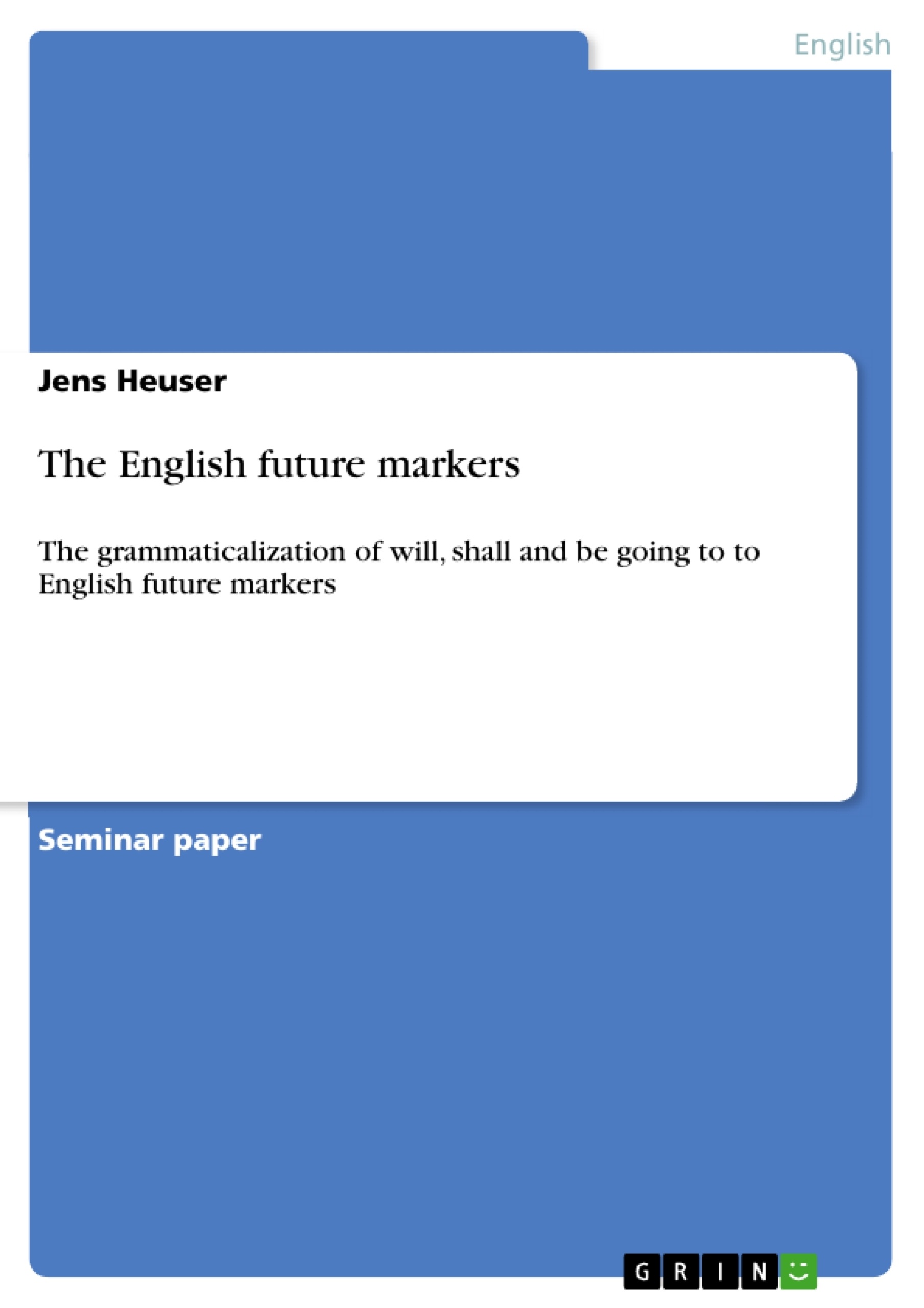The grammaticalization of will and shall, and be going to from Old English verbs of volition, obligation and movement to Present-day English future auxiliaries will be the focus of this paper. Special attention will be devoted to the role of be going to (< gonna) which -as of today- has taken up an important position in spoken language. After a quick glance at the etymological roots of these words, their clines of grammaticalization will be outlined and contrasted to each other. As the process of grammaticalization of will, shall, and going to to future markers is seen as finished throughout literature, the current development of their 'successors' 'll and gonna continues to modify the system of future tense in the English language.
Inhaltsverzeichnis (Table of Contents)
- The English future tense
- The development of the English future tense
- Etymology
- Grammaticalization
- The rise of will and shall to English future markers
- The going to-future
- Conclusion
Zielsetzung und Themenschwerpunkte (Objectives and Key Themes)
This paper examines the diachronic grammaticalization of the English future tense markers, focusing on the shift from Old English verbs of volition, obligation, and movement to Present-day English future auxiliaries. The main objective is to provide a historical perspective on the development of will, shall, and be going to, highlighting their evolution from lexical items to grammatical markers of future time.
- Grammaticalization of English future tense markers
- Etymology and development of will, shall, and be going to
- Shift from Old English to Present-day English usage
- Comparative analysis of the grammaticalization clines of will, shall, and be going to
- The role of be going to in spoken English
Zusammenfassung der Kapitel (Chapter Summaries)
- The English future tense: This chapter introduces the concept of language change and emphasizes the need for a historical perspective to understand grammaticalization. It discusses the absence of an inflexional future tense in English and presents the four main means of expressing the future in the language.
- The development of the English future tense: This chapter delves into the etymology and grammaticalization of the English future markers will, shall, and be going to. It traces their origins from Old English verbs of volition, obligation, and movement to their current roles as future auxiliaries in Present-day English. The chapter also explores the emergence of the contracted forms 'll and gonna and their role in the evolution of the English future tense.
Schlüsselwörter (Keywords)
The main keywords and focus topics of the text are: grammaticalization, English future tense, will, shall, be going to, Old English, Present-day English, etymology, diachronic linguistics, future markers, language change, syntax, morphology, semantics, spoken language, contracted forms, 'll, gonna.
- Quote paper
- Magister Artium Jens Heuser (Author), 2009, The English future markers, Munich, GRIN Verlag, https://www.hausarbeiten.de/document/177525



